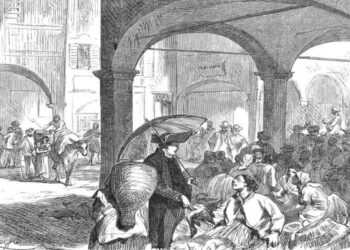Orenthal James Simpson, known globally as O.J. Simpson, died on April 10, 2023, at the age of 76, after a private battle with prostate cancer. The news was confirmed by his longtime attorney, Malcolm LaVergne, who stated that Simpson succumbed to metastatic prostate cancer, a diagnosis he had shared publicly just a year prior. Simpson’s death certificate, according to his attorney, officially lists the disease as his cause of death.
Born in 1947 in San Francisco, California, Simpson emerged from a challenging childhood to attend the University of Southern California (USC), where he won the Heisman Trophy in 1968 as the nation’s best collegiate football player. He entered the NFL with high expectations, drafted by the Buffalo Bills in 1969. Over the next decade, he set numerous records, including being the first player to rush for more than 2,000 yards in a season—a feat accomplished in just 14 games.
After retiring from professional football in 1979, Simpson transitioned into acting and sports broadcasting. He appeared in movies like “The Towering Inferno” and “Capricorn One,” and worked as a commentator for NBC Sports during the 1980s.
However, Simpson’s life took a dramatic turn in 1994 when he was charged with the murders of his ex-wife, Nicole Brown Simpson, and her friend Ronald Goldman. The 1995 trial, often referred to as “The Trial of the Century,” ended in his acquittal of all criminal charges, a verdict that polarized the American public and ignited debates over the justice system and racial inequality in the United States.
Despite the acquittal, Simpson’s legal battles continued. In 1997, he was found liable for the wrongful deaths of Goldman and Brown Simpson in a civil suit brought by their families. The court ordered him to pay $33.5 million in damages, a sum that remained largely unpaid. Simpson’s reputation never recovered, and his life remained a subject of public fascination and scrutiny.
In 2007, Simpson faced further legal issues when he was arrested in Las Vegas on charges of armed robbery and kidnapping. He was convicted in 2008 and served nine years in prison before being released on parole in 2017.
Throughout his later years, Simpson maintained a presence on social media, where he commented on sports and other aspects of popular culture. His health became a topic of public discussion in 2023 when he announced his battle with prostate cancer. Despite the diagnosis, he remained engaged with his audience, refuting rumors about his health deteriorating to the point of hospice care.
Simpson’s death was announced by his children through a post on the social media platform X, formerly known as Twitter. “On April 10th, our father, Orenthal James Simpson, succumbed to his battle with cancer,” the statement read. “He was surrounded by his children and grandchildren. During this time of transition, his family asks that you please respect their wishes for privacy and grace.”
The news of Simpson’s passing has elicited a wide range of responses, reflecting the complex legacy he leaves behind. Some remember him as one of the greatest football players of all time, whose athletic achievements were overshadowed by his legal troubles. Others view him through the lens of the controversies that followed him—most notably, the murder trial and subsequent civil judgment.
Marcia Clark, the lead prosecutor in the murder trial, expressed sympathy upon hearing of his death, sending condolences to his family. Conversely, Caitlyn Jenner, whose then-wife Kris Jenner was a close friend of Nicole Brown Simpson, succinctly expressed a less sympathetic stance with her comment, “Good Riddance.”
Simpson’s attorney, Malcolm LaVergne, emphasized that Simpson’s estate would handle any claims from the Goldman family transparently, respecting the legal proceedings and the family’s long-standing efforts to enforce the civil judgment.
As news of his death spreads, it reignites discussions about his life and the societal issues it highlights—race, celebrity, and justice. Simpson’s story is a tragic saga of potential, achievement, downfall, and the relentless scrutiny of public life. His athletic prowess brought him fame, but his personal life and the legal battles that followed would forever define his legacy.
O.J. Simpson’s legacy encapsulates America’s intricate relationship with its celebrities and the legal system, highlighting the nation’s fascination with and repulsion by the same.
His journey from celebrated athlete to controversial public figure underscores the precarious balance of fame, where personal achievements and public persona often collide with the realities of human fallibility and societal judgment.
Simpson’s story began as an inspirational narrative of a young man rising from poverty to dominate the sports world. His athletic prowess at USC and later with the Buffalo Bills showcased his extraordinary abilities and determination, earning him not just accolades but also a revered status among sports legends. However, this ascent in the public eye set the stage for an equally public and dramatic descent.
His trial for the murders of Nicole Brown Simpson and Ronald Goldman shifted his identity from sports icon to accused murderer overnight. The trial, broadcast live and consumed by millions, became a cultural spectacle that highlighted deep racial and social divides in America. It also illustrated how celebrity could both shield and expose individuals to the intense scrutiny of the public and the press.







